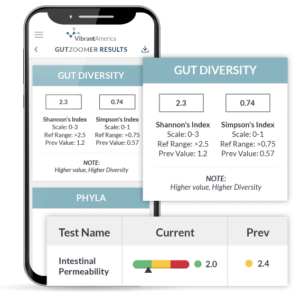A healthy gut is the power center of a healthy body. There are more organs in this system than in any other system. Our digestive system helps absorption of nutrients, and detoxification of toxins, and helps make hormones and neurotransmitters such as melatonin and serotonin. Anything interfering with the digestive processes and detoxification system interferes with energy, sleep, mood, immune function, and more. Can constipation affect your mood? It’s true that chronic constipation may lead to anxiety, depression, insomnia, and migraines. As a naturopathic doctor, chronic constipation is a common issue that I help address. You should produce a bowel movement at least once a day. Although constipation is very common, finding the underlying cause can be complex and differ from person to person. Regular bowel movements are the cornerstone of good health as can ensure proper detoxification and absorption of nutrients and can be a sign of a healthy digestive tract.
Constipation & Mood Disorders: How Gut Health Affects Mental Health
When I see someone with chronic anxiety or depression, I oftentimes find some sort of underlying gut issue. Notice the difference in your mood when you have a good bowel movement every day? Don’t you feel a little more optimistic about life? It’s not a coincidence. Most of your neurotransmitters, like serotonin, are made in your gut, and maintaining healthy digestion is essential for mental health. In fact, there is a bi-directional connection between your gut and brain via your enteric nervous system, your vagus nerve, and your gut microbiome.
The Brain and Gut Health Connection: A Bi-Directional System
Enteric Nervous System: There is a nervous system located in your gut! It is known as the “second brain” because it is the largest neural network outside of your brain and can operate independently from your brain and central nervous system. It operates within your gastrointestinal tract and controls digestive functions. Vagus Nerve: As one of the 12 cranial nerves it is the link between the enteric nervous system and your brain. The vagus nerve carries sensory information about the gut’s conditions, such as the presence of food or chemical changes, to the brain. It also can communicate changes in moods or stress to the gut and affect digestive function. Gut Microbiome: Our intestinal microbiome is home to trillions of bacteria and organisms, and these tiny helpers break down food, assist in elimination, and help with neurotransmitter production. Recent studies have shown that the gut microbiome may be involved in various neurological, mental health, and digestive issues such as irritable bowel syndrome (IBS). Accumulating data now indicate that the gut microbiota also communicates with the CNS–possibly through neural, endocrine, and immune pathways–and thereby influences brain function and behavior.1 This bi-directional system can affect how you feel mentally and also how your gut feels! So how can you support this system? Below are seven healthy practices that may help to maintain a happy, healthy gut. However, If you suffer from chronic constipation or other digestive issues, it’s a good idea to seek help from your medical practitioner or schedule an appointment with me to find what works best for you.
- Movement: If your body isn’t moving, your gut and other systems slow down. Exercise isn’t just important for staying in shape, but is a means to keep your body functioning properly. Working your muscle groups improves muscles around your intestines promoting peristalsis (involuntary contractions of your intestines to promote bowel movement.) Regular exercise will help keep things moving smoothly.
- Proper Diet: Our digestive system is not able to break down an overload of foreign chemicals. By minimizing processed foods and choosing whole organic foods, we supply our body with the nutrients it needs. These whole foods also supply fiber and prebiotics needed to absorb toxins and promote bowel movement. Too much sugar, simple carbs, and processed foods gunk up the digestive tract and over time can build up an overgrowth of unhealthy bacteria and yeast. Be careful adding fiber when constipated as it may make it worse until you figure out the underlying cause.
- Probiotics: Our intestinal microbiome is home to trillions of bacteria and organisms. These tiny helpers break down food and assist in elimination. Probiotics are important for healthy digestion and a strong immune system. Food sources include sauerkraut, kimchi, miso, olives, lemon pickles, and dark chocolate. As far as supplementing with probiotics, ensure you know your source as this is live bacteria and there are different strains for various health issues. This is very important! Probiotic supplements should have the strain listed on the bottle after the name of the genus and species (i.e. Lactobacillus acidophilus LA5). The strain is a combination of letters and numbers such as LA5 in this example. If it does not list the strain, you will not know if it is efficacious as actions and qualities are strain-specific.
- Digestive Enzymes: Enzymes help us break down food, help us detox, and help with inflammation. If you cook foods over 118°F you are killing a lot of the enzymes so this is where we need some supplemental support. There are many types of enzymes so getting the correct regimen for you is important. Our Gut Health Assessment may help shed some light on this area.
- Water: Drink clean, fresh, and plenty! Typically drinking half your body weight in ounces is a good place to start. This alone can help with constipation.
- Functional Stool Testing: In my practice, I may use Functional Stool Testing such as the Gut Zoomer to discover what enzymes and probiotics, prebiotics will work best for you. This test also screens for pathogens such as parasites, H. Pylori, and bacteria as well as leaky gut (intestinal permeability) and inflammation markers. This test may not always be required due to my experience working with gut issues. I may come up with your plan via a thorough intake at your first appointment. Order Gut Zoomer Stool Test.

- NAET: Sometimes, regular constipation is caused by food sensitivities, the most common being gluten, dairy, and egg. NAET is a highly effective, gentle treatment for food sensitivities as well as environmental and seasonal allergies. If constipation or other gut problems follow you around, addressing food sensitivities can be a game changer.
- Micronutrient Testing: I frequently use micronutrient testing to evaluate how the body is absorbing important vitamins and minerals like Vitamin C or magnesium. Both these nutrients are important for keeping the bowels moving smoothly, but Vitamin C is also a key adrenal supporter and magnesium is essential for muscle recovery. From this test, I also assess the need for enzymes, detoxification, or gall bladder support.
Constipation is usually a symptom of other issues caused by a lack of enzymes, bacterial imbalances, allergies, food sensitivities, hormonal imbalances, stress/mood, and vitamin/mineral deficiencies. Knowing and understanding what is causing the body to ‘back up’ is oftentimes my first step in creating an individualized protocol. Chronic constipation doesn’t have to be a mystery. If you are struggling with occasional or chronic constipation, make an appointment with your doctor or call to learn more about my practice. Book Appointment Order Gut Zoomer Stool Test Gut Health Assessment
- Nat Rev Neurosci. 2012 Oct;13(10):701-12. PMID: 22968153

